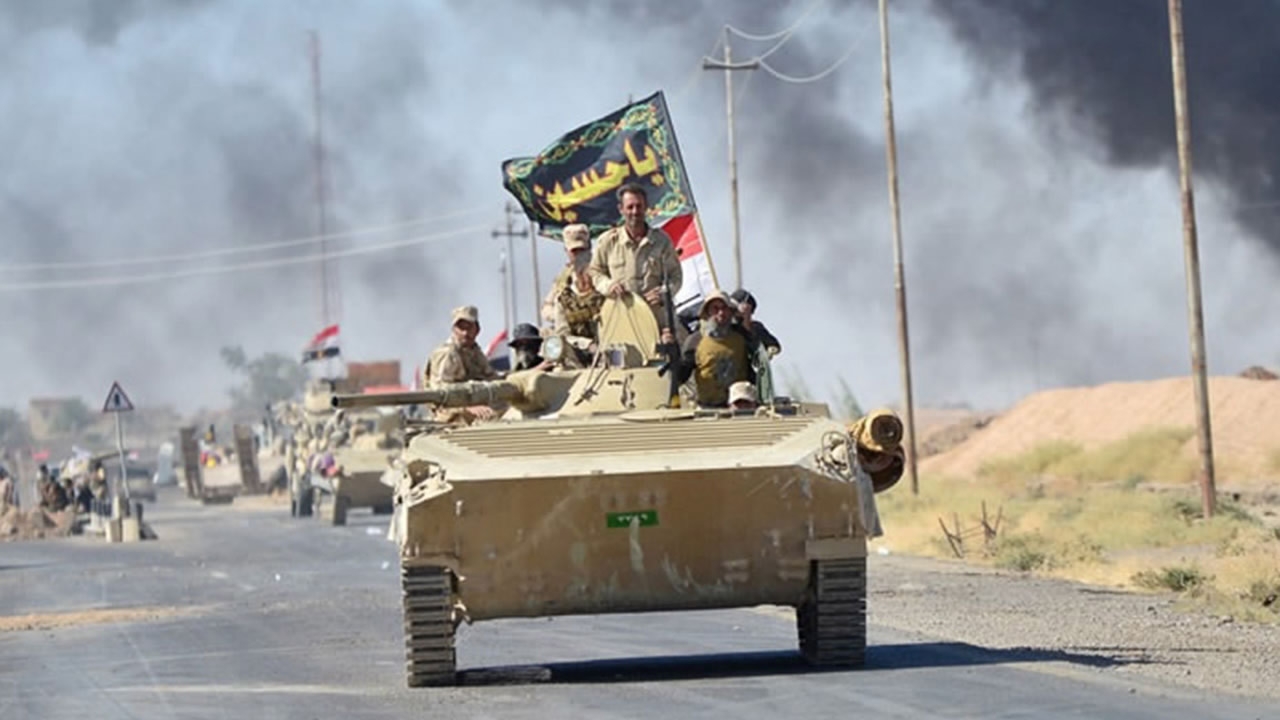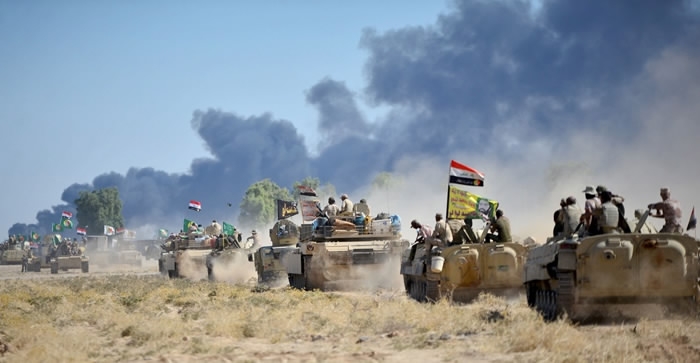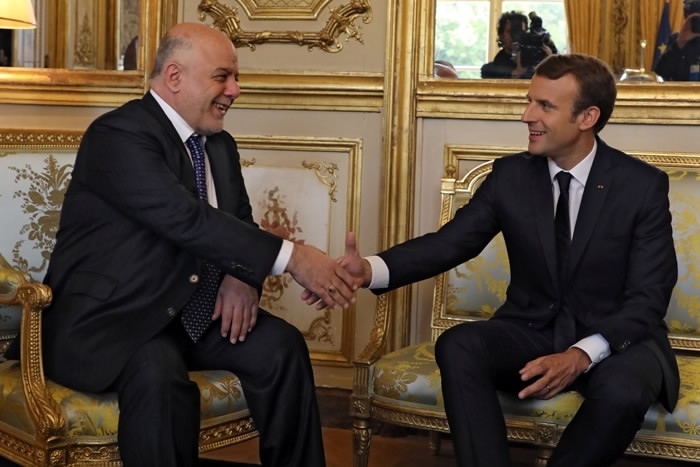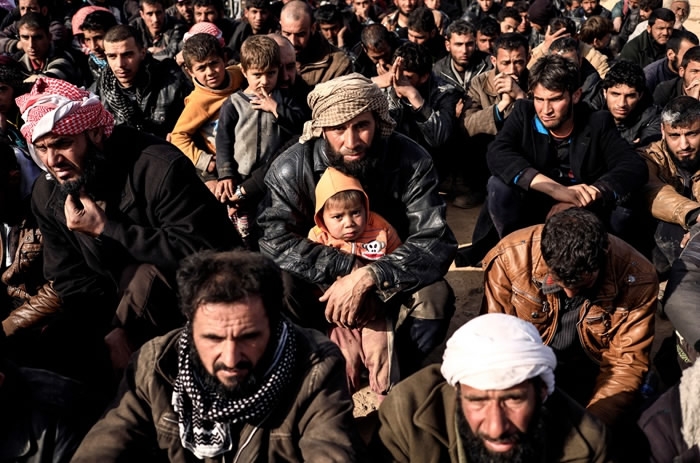
Politics
16:31, 05-Oct-2017
Iraqi PM announces recapture of ISIL bastion Hawija
CGTN

Iraqi forces have recaptured ISIL's stronghold Hawija, Prime Minister Haider al-Abadi said in Paris on Thursday. "I announce the liberation of the city of Hawija," al-Abadi said after talks with French President Emmanuel Macron. "All that remains is the strip on the border with Syria."
Earlier on Thursday, the operation's commander, Lieutenant General Abdel Amir Yarallah, said Iraqi troops, police and paramilitaries "liberated the whole of the center of Hawija and are continuing their advance."
Government and allied forces backed by a US-led coalition launched an offensive last month to oust ISIL from Hawija, a longtime insurgent bastion. The town is among the final holdouts from the territory seized by the jihadists in 2014 and its recapture would leave only a handful of remote outposts in ISIL's hands.

Shi'ite Popular Mobilization Forces (PMF) and Iraqi army drive armored vehicles on the outskirts of Hawija, Iraq, October 4, 2017. /Reuters Photo
Shi'ite Popular Mobilization Forces (PMF) and Iraqi army drive armored vehicles on the outskirts of Hawija, Iraq, October 4, 2017. /Reuters Photo
Abadi met French President Emmanuel Macron in Paris on Thursday for talks on the campaign against ISIL, which is backed by a US-led coalition including France.
The United Nations said on Tuesday that an estimated 12,500 people had fled Hawija since the launch of the offensive to retake the town and surrounding areas last month. The UN's humanitarian affairs office said the number of people still in the town was unknown but could be as high as 78,000. It said humanitarian agencies have set up checkpoints, camps and emergency sites capable of receiving more than 70,000 people who could flee.

French President Emmanuel Macron (R) shakes hands with Iraqi Prime Minister Haider al-Abadi prior to their meeting at the Elysee Palace in Paris, France, October 5, 2017. /Reuters Photo
French President Emmanuel Macron (R) shakes hands with Iraqi Prime Minister Haider al-Abadi prior to their meeting at the Elysee Palace in Paris, France, October 5, 2017. /Reuters Photo
'Kandahar in Iraq'
Hawija, 230 kilometers north of Baghdad, is one of just two significant areas of Iraq still held by ISIL, along with a stretch of the Euphrates Valley near the Syrian border which is also under attack. It has been an insurgent bastion since soon after the US-led invasion of 2003, earning it the nickname of "Kandahar in Iraq" for the ferocious resistance it put up similar to that in the Taliban militia's citadel in Afghanistan.
The town's mainly Sunni Arab population is deeply hostile both to the Shiite-led government in Baghdad and to the Kurds who form the historic majority in adjacent areas.
Hawija lies between the two main routes north from Baghdad – to second city Mosul, recaptured from ISIL in July, and to the city of Kirkuk and the autonomous Kurdish region.

Displaced Iraqis who fled their homes wait to register at the special forces base as Iraqi forces battle with ISIL militants in western Mosul, Iraq, February 28, 2017. /Reuters Photo
Displaced Iraqis who fled their homes wait to register at the special forces base as Iraqi forces battle with ISIL militants in western Mosul, Iraq, February 28, 2017. /Reuters Photo
Last year, government forces bypassed the area in their advance north to Mosul, which culminated in the jihadists' defeat in their most emblematic bastion.
ISIL has been forced out of most of the territory it seized in Iraq and Syria during a lightning offensive in the summer of 2014 that was followed by its declaration of a cross-border "caliphate."
The US-led coalition is also backing an Arab-Kurdish alliance, the Syrian Democratic Forces (SDF), which is battling to oust ISIL from its de facto Syrian capital Raqa. The SDF has captured about 90 percent of Raqa and is fighting fierce battles with remaining ISIL jihadists.
ISIL's other main stronghold in Syria is the eastern province of Deir Ezzor, which borders ISIL-held territory in Iraq. Two separate offensives are under way against the jihadists in Deir Ezzor – one by the SDF, the other by government forces supported by Russia.
6248km
Source(s): AFP

SITEMAP
Copyright © 2018 CGTN. Beijing ICP prepared NO.16065310-3
Copyright © 2018 CGTN. Beijing ICP prepared NO.16065310-3